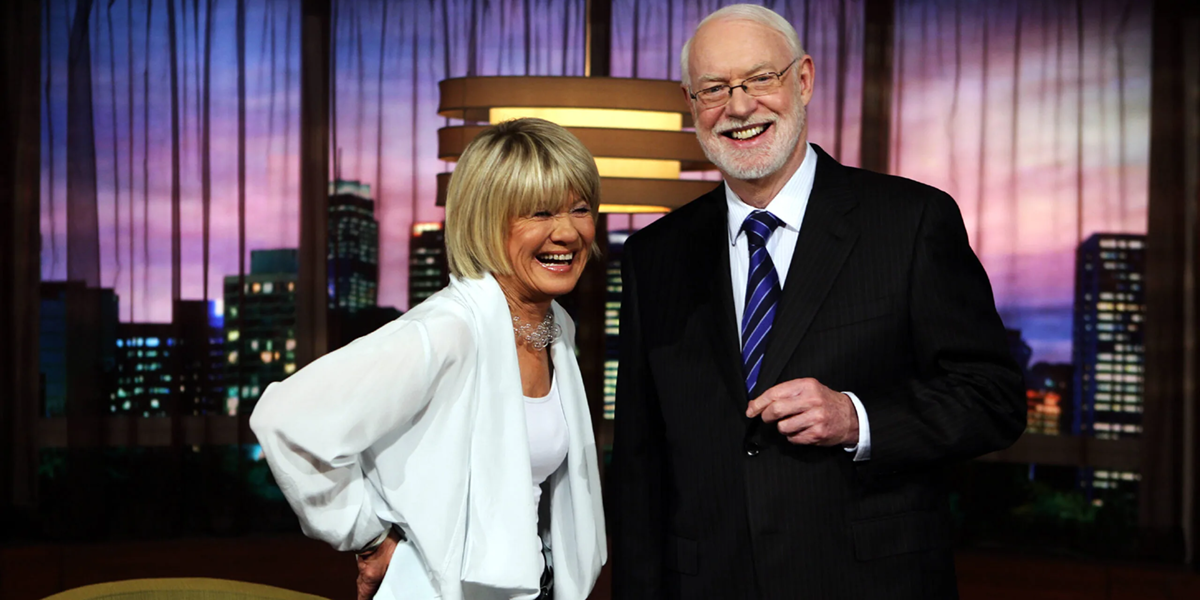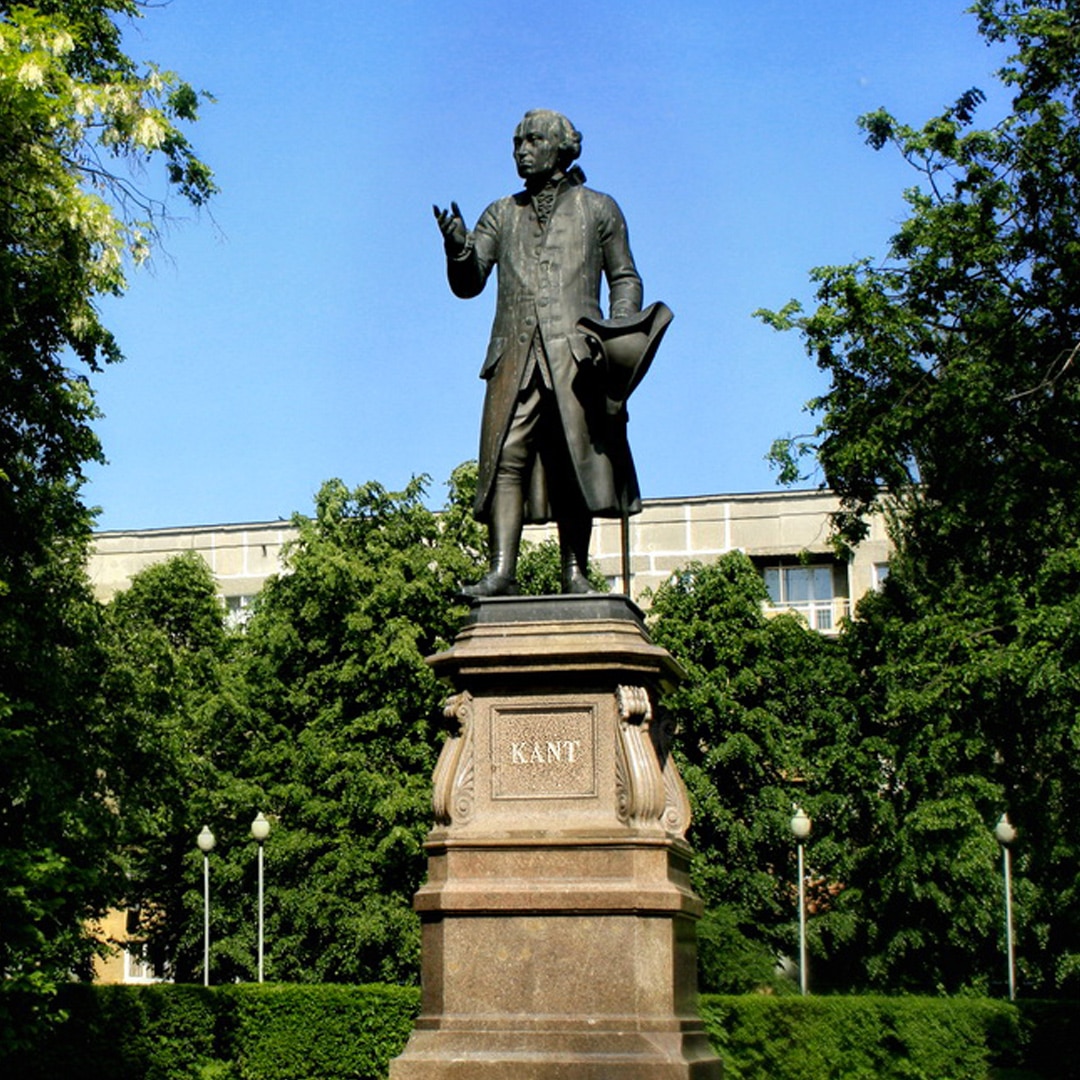
David and Margaret spent their careers showing us exactly how to disagree
Opinion + AnalysisSociety + Culture
BY Joseph Earp 19 AUG 2025
When David Stratton – critic, TV presenter and hero to a generation of movie lovers – died last week at 85, he was immediately honoured as one of this country’s true soldiers of cinema: a relentless advocate who spent his life championing the artform he loved.
Cinema had a loyal, passionate and fiercely intelligent friend in David Stratton. He was a man who worked hard to make loving movies seem serious and worthwhile – so much more than just a hobby.
But over the course of his long and varied career, Stratton didn’t just kindly, patiently and honestly explain his passions. Along with his onscreen co-host Margaret Pomeranz, he also taught us a deeply valuable ethical lesson, time and time again: a lesson in the fine art of disagreement.
What do Lars Von Trier and Vin Diesel have in common?
Pomeranz and Stratton were, from the very start of their time together, opposites. Pomeranz, who began her career in television as a producer, and was encouraged to move in front of the camera by Stratton, prized a curiously outrageous form of entertainment far more than Stratton.
Stratton loved to laugh, make no mistake, but he drew a line at anything he considered tacky. Pomeranz, by contrast, loved that stuff. When they butted heads, it was over films like Team America: World Police (Pomeranz loved it; Stratton hated it); Sex And The City 2 (Pomeranz said it contained a “jacket she’d kill for” and gave it three stars; Stratton called it “offensive”).
These differences in opinion weren’t just a casual “let’s agree to disagree” partings of ways. Once, memorably, Pomeranz gave Lars Von Trier’s Dancer in The Dark five stars, while Stratton gave it zero. When Pomeranz stood up for Vin Diesel, a performer Stratton hated, Stratton lightly poked fun at her, saying she wanted Diesel to “save her.” Possibly their biggest disagreement was over the classic Australian film Romper Stomper, starring Russell Crowe as a wild-eyed neo-Nazi. Stratton not only thought the film was terrible, he thought it was actively ethically harmful. Pomeranz gave it five stars.
Sometimes these disagreements got a little heated. Stratton could be dismissive; Pomeranz seemed occasionally exasperated with him. But the pair never lost respect for one another, no matter how far apart their tastes pulled them – and, importantly, they never started throwing barbs at each other. Their disagreement was localised to the thing they were disagreeing about, not ad hominem snipes at the other’s character.
Pomeranz herself acknowledged this, in a recent tribute written to honour her friend and colleague. “I think it’s extraordinary that, over all the time that David and I worked together, we never had a falling out”, she wrote. Disagreements between the two were common. But true breaks in the relationship – true threats to their working together – never were.
The power of disagreement
Sometimes, disagreement is cast as an impediment to societal functioning. We can all be guilty of occasionally speaking as though disagreement is the enemy – as though for us to all flourish, we should all get along, all the time. That’s not to say that there are some matters where disagreement should be encouraged – the power of disagreement is not a free card to put every matter up for debate, no matter how harmful.
But the history of philosophy shows us there’s power in sometimes parting opinion. Plato, for instance, presented almost all of his arguments in the form of debates, with characters going back and forth amongst each other on what is the correct behaviour. Plato’s “dialogues”, and thus, his entire ethical worldview, were fashioned out of disagreement.
It is in disagreement, after all, that we get to honour one of the beautiful things about our world – difference, uniqueness, and the full richness of human experience.
It would be a very boring, and perhaps even insidious, world if we all thought the same thing. After all, a forced unity of opinion is one of the hallmarks of fascism.
Disagreements, if handled and conducted well, can also guide us away from extremes. In some matters, truth lies in the middle of two poles. So it went on The Movie Show at least – I am not convinced we always agreed with our favourite from the pair. As viewers, our own tastes fluctuated between the extremes of Pomeranz and Stratton. In their disagreements, we could pick and choose elements of their tastes, and construct our own.
And again, these were debates that never descended into name-calling, or anger. In this, Pomeranz and Stratton taught us another ethical lesson – that we can treat someone disagreeing with us as someone offering us kindness. Having to justify and argue for our own positions helps us better understand them. And it helps us better understand the world around us; the people around us.
Laying my own cards on the table, I’ve always been more of a Pomeranz person (I love Von Trier, Romper Stomper, and Team America). But that’s just the thing. No matter how much I, a viewer raised on The Movie Show, found myself grumpily disagreeing with Stratton, it never made me dislike him. And when he passed, the loss I felt was not just the loss of a man I had always admired. It was the loss of a defender of art and a good sparring partner – no matter that it was one-sided sparring, through the TV. Disagreement done well is a gift. And no one more generously gave out that gift than David Stratton.

BY Joseph Earp
Joseph Earp is a poet, journalist and philosophy student. He is currently undertaking his PhD at the University of Sydney, studying the work of David Hume.
Ethics in your inbox.
Get the latest inspiration, intelligence, events & more.
By signing up you agree to our privacy policy
You might be interested in…
Opinion + Analysis
Society + Culture
How The Festival of Dangerous Ideas helps us have difficult conversations
Opinion + Analysis
Society + Culture
David Lynch’s most surprising, important quality? His hope
Opinion + Analysis
Society + Culture
10 films to make you highbrow this summer
Opinion + Analysis
Relationships, Society + Culture




